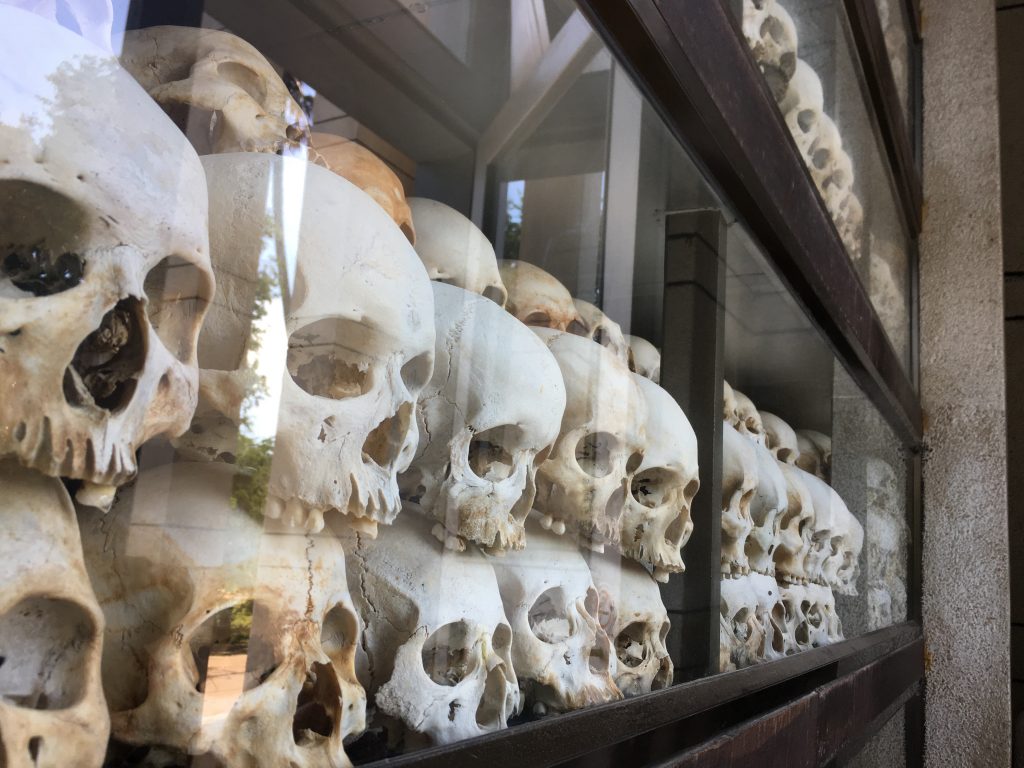Let’s ponder the repercussions of removing all educated individuals from society and the effects that would have on education, healthcare, any kind of structured society.
Phnom Penh is not a city to visit to admire architectural wonders, ancient temples or grandiose palaces. The main attractions of Phnom Penh were the Killing Fields and the Prison (formerly the local high school) now called Tuol Sleng Genocide Museum.
It’s difficult to find words to describe the eerie feelings that overwhelm your body as you walk through these places, so I’ll mostly let the photographs do the talking
The Killing Fields








Tuol Sleng Genocide Museum

Prisoners Would Be Chained To Beds, Forced To Admit To Crimes Not Committed




What remains difficult for us to understand is how this atrocious genocide occurred in front of the world and even local citizens, without much notice to the masses disappearing and being slaughtered. A village surrounds the killing field, but the property was disguised as a military base to avoid suspicion. Truckloads of those kidnapped and torn from their homes would arrive in the middle of the night. Once people were brought to the killing fields, they remained there and still do today.
Music would be played during the slaughtering so citizens on the other side of the walls would not hear the death screams or the wailing of babies and children crying for the comfort of their mothers.
Pol Pot and his party even invited the Swiss government on a tour of Cambodia in the midst of it all. Of course, this tour was highly structured and planned out so the Swiss would see what he wanted them to – a new society of equality and happy citizens.
Thirty years later, a heavy sentiment remains with the people of Cambodian (Khmer) people, for whom this period of tragedy still remains fresh – mothers, fathers, daughters and sons, and friends lost. For some, they are the only surviving member of their family.
We found that despite the horrors of the past, the local people are some of the kindest, welcoming and warm people we’ve met along the road.
Our travels are teaching us more about cultures and events we’ve never learned about, even in our twenty plus years of education in a classroom. This is one of the most rewarding factors in exploring our planet. You realize what a small place you occupy in this world. We are lifelong learners and this adventure is teaching us to fully grasp this concept by seeing and doing all we can in Southeast Asia, even if at times it means coming to terms with grim events of our world.
For a brief history of the Khmer Rouge, check out this website:
“I truly believe the only way we can create global peace is through not only educating our minds, but our hearts and our souls.”
-Malala Yousafzai




